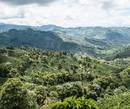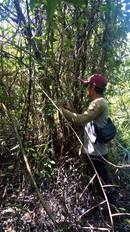News

13 May 2019, Kyoto - A paradigm shift to achieve zero deforestation, restore large areas of forest and reduce emissions from deforestation and forest degradation is required to fulfil Paris Agreement climate change goals, a session at the Global Landscapes Forum (GLF) in Kyoto heard today.
Hiroto Mitsugi, FAO Assistant Director-General, Forestry Department, highlighted the importance of approaching development holistically, noting that the sustainable landscape approach is key to reaching climate resilience and ecosystem restoration goals.
“To reach these goals requires a new way of looking at land use, of working together across sectors, and of doing business,” Mitsugi said in a speech...

A great emphasis is currently being placed on achieving transformational change and paradigm shift through policies and measures to fulfil the Paris Agreement goals and progressing on the UN 2030 development agenda, particularly by the world’s largest climate mitigation and adaptation facility, the Green Climate Fund (GCF). Initiatives to achieve zero deforestation, restore large areas of forest and reduce emissions from deforestation and forest degradation through activities such as REDD+ are showing potential to be catalysts for the much needed paradigm shift. Engagement in such efforts by developing countries will be key for ensuring sustainable and long-lasting sectoral and cross-sectoral...

As countries step up their efforts to fulfill commitments made under the Paris Agreement on Climate Change and Agenda 2030, the cross-cutting theme of improved forest governance is at the centre of efforts to halt deforestation and forest degradation as well as action to achieve Nationally Determined Contributions and the Sustainable Development Goals (SDGs).Speaking during a panel discussion of the European Commission’s high-level conference “Our Forests, our Future, sustainable forest management to address societal challenges”, Tiina Vähänen, Chief of the Food and Agriculture Organization of the United Nations’ (FAO) Forestry Policy and Resources Division, spelled out FAO’s well-established commitment to...

Myanmar has a long tradition in Forest Inventory and is among first countries in the world that historically had established sample-based large area forest inventories. The first National scale forest inventory was established in 1980/81 with the funding from UNDP/FAO as first phase and second phase until 1992. However, the National Level Forest Inventory was not able to fully finish for a number of different reasons.
To support the National Scale Forest Inventory, FAO UN-REDD Programme has been working together with the Forest Department, Ministry of Natural Resources and Environmental Conservation, since 2015. In 2016, FD had endorsed the National Forest...
Significant advances in designing and planning of a National Forest Inventory (NFI) in Myanmar
19/04/2019
19/04/2019

A prime source of information about the state of the forests globally is the National-scale Forest Inventories (NFIs) at country level. In this context, FAO since its foundation in 1945, is helping countries in establishing and improving national capacities in collecting data on forests and monitoring the changes over time. Currently, FAO works in around 45 countries, including Myanmar, supporting the development and upgrading of their National Forest Monitoring Systems (NFMS). The objective of this endeavor is to enable countries to produce robust forest information in order to provide updated and reliable data for sound forest policy planning and evaluation...

